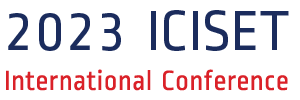
Prof. Olugbenga is a Computational Scientist well equipped with the broad knowledge of scientific methodologies and rich blend of expertise in the application of modern computational techniques to solving real-life problems particularly in the area of public health. An academician and researcher by profession, he engages in productive and meaningful research that helps to proffer solutions to the many existing real-life public health problems.
Olugbenga was a DST-NRF Innovation Postdoctoral Research Fellow at the Department of Mathematical Sciences, University of Stellenbosch, South Africa and the DST/NRF Center of Excellence in Epidemiological Modeling and Analysis (SACEMA), University of Stellenbosch, South Africa. His current research centers around the development of informatics systems for COVID-19 management and HIV control in Africa. He also engages in the development of mathematical and computational models for malaria elimination. In addition, he is applying bioinformatics techniques towards the control of infectious diseases. He is also into the development of informatics tool prototypes.
Olugbenga trained as a Computer Scientist at the Department of Mathematics of the University of Ilorin, before completing a M.Sc Computer Science postgraduate training at the Department of Computer Science of the University of Ibadan, Nigeria. He also has a postgraduate advanced certificate in English from the Rochester Institute of Technology, Rochester, New York, USA. He won a Fulbright fellowship that spanned 2010-2011 for his PhD research in the United States of America. During his joint PhD training at Covenant University, Nigeria and the Johns Hopkins Bloomberg School of Public Health, Johns Hopkins University, United States of America, Olugbenga developed (AnoSpEx): Anopheles Spatially-Explicit Computational Model for the metapopulation dynamics of Anopheles mosquitoes towards the control of malaria. The results of the simulation and modeling of his model have been tested and validated with field data.
Olugbenga is interested in developing and implementing computational methods used in health research especially in the control of communicable diseases. He is particularly interested in infectious and non-communicable diseases, that affect the African and world population. His research interests centers around Artificial intelligence in health, informatics in health, machine learning, computer-aided diagnosis, modeling and simulation, bioinformatics, applied computer science, and the application of computational techniques and methods to solving problem caused by infectious and non-communicable diseases.
Olugbenga’s present research focuses on the development of bioinformatics and informatics tools for the control of diseases such as Ebola, Malaria and HIV, amongst others. Furthermore, as a result of Olugbenga’s research and teaching commitments, he has taught bioinformatics, computational biology, mobile computing, mathematical methods, computer programming in C++, Discrete Structures, and Compiler Construction at Covenant University for about ten years and supervised both undergraduate and postgraduate students. He was a Postdoctoral Research Fellow in the University of Stellenbosch, South Africa.
Olugbenga is a member of the Institute of Information Technology Professionals South Africa (IITPSA) formerly known as Computer Society South Africa (CSSA). He is also a member of the South African Institute of Computer Scientists and Information Technologists (SAICSIT). Olugbenga is a member of the International Society for Computational Biology (ISCB). He was previously the vice-president of the International Society for Computational Biology-Regional Student Group (ISCB-RSG-WA) West Africa. He is a member of the African Society for Bioinformatics and Computational Biology (ASBCB).He is also a member of the Nigerian Computer Society (NCS). He is a member of the Fulbright Fellowship Alumni Association of Nigeria (FAAN). He plays prominent role in the development of Artificial-intelligence-informatics tools in health, and bioinformatics in the scientific community. Prior to this, he was the webmaster of the Regional Student Group (West African region), which is affiliated to the International Society for Computational Biology (ISCB).
